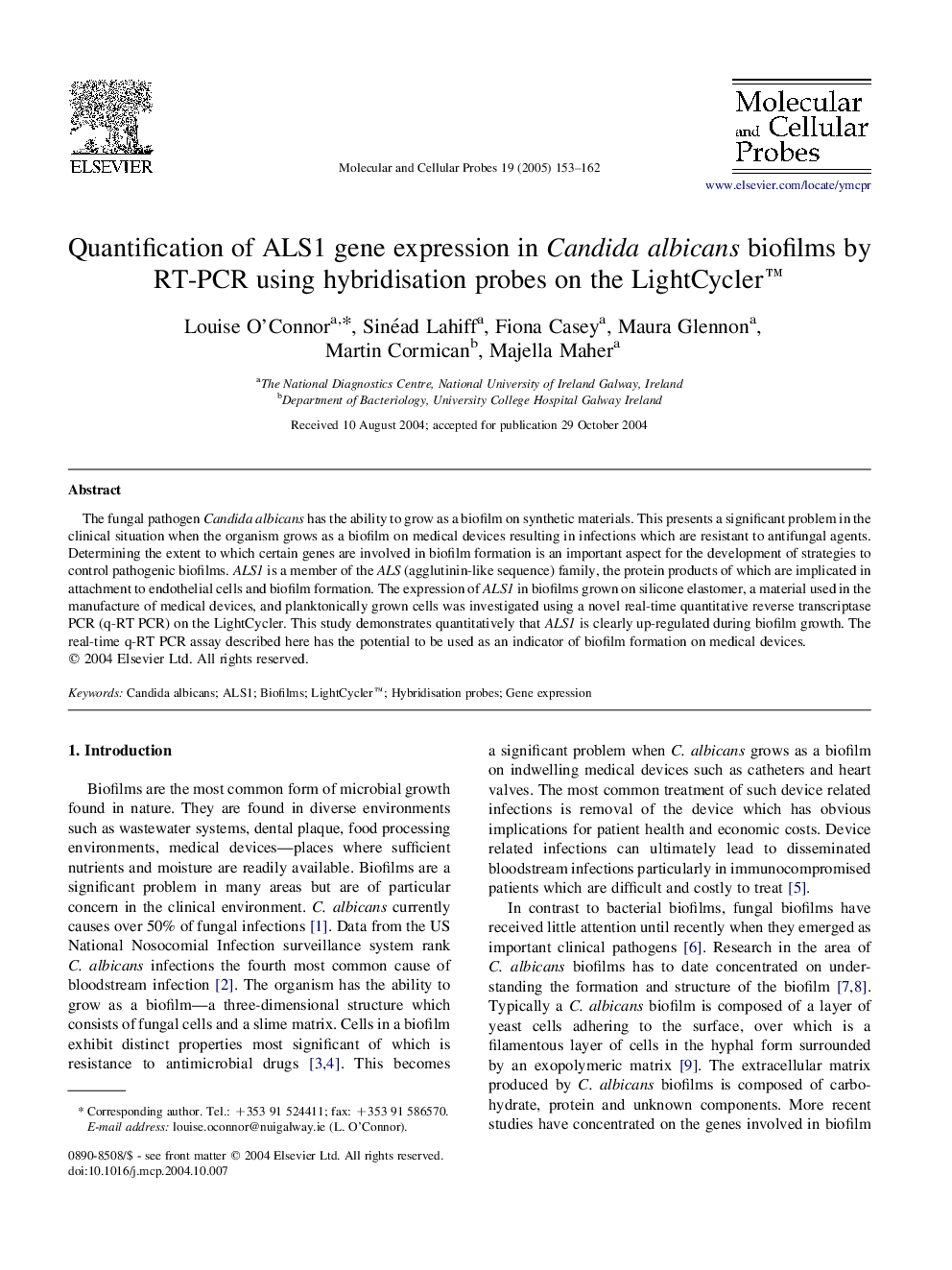| Article ID | Journal | Published Year | Pages | File Type |
|---|---|---|---|---|
| 10957776 | Molecular and Cellular Probes | 2005 | 10 Pages |
Abstract
The fungal pathogen Candida albicans has the ability to grow as a biofilm on synthetic materials. This presents a significant problem in the clinical situation when the organism grows as a biofilm on medical devices resulting in infections which are resistant to antifungal agents. Determining the extent to which certain genes are involved in biofilm formation is an important aspect for the development of strategies to control pathogenic biofilms. ALS1 is a member of the ALS (agglutinin-like sequence) family, the protein products of which are implicated in attachment to endothelial cells and biofilm formation. The expression of ALS1 in biofilms grown on silicone elastomer, a material used in the manufacture of medical devices, and planktonically grown cells was investigated using a novel real-time quantitative reverse transcriptase PCR (q-RT PCR) on the LightCycler. This study demonstrates quantitatively that ALS1 is clearly up-regulated during biofilm growth. The real-time q-RT PCR assay described here has the potential to be used as an indicator of biofilm formation on medical devices.
Related Topics
Life Sciences
Biochemistry, Genetics and Molecular Biology
Cell Biology
Authors
Louise O'Connor, Sinéad Lahiff, Fiona Casey, Maura Glennon, Martin Cormican, Majella Maher,
